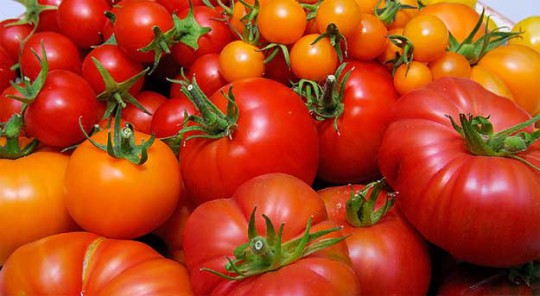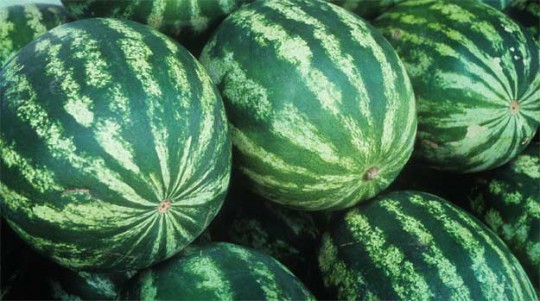Healthy Florida Summer Series: Plant A Summer Garden
June 30, 2013
The following article from our “Healthy Summer Series”, in cooperation with the Florida Department of Health, takes a look the healthy benefits of planting your own garden. It’s much easier and more beneficial than you might think. Not only is it a great way to get outside and soak up some vitamin D, it provides you and your family with a wider range of food choices that are just as rich in flavor as they are in health benefits.
Good summer crops in Florida must produce and thrive in muggy, humid and extremely warm weather. When considering a summer garden, it is important to research which fruits and vegetables yield the best results. The following list of fruits and vegetables can be grown during the summer in Florida:
Lima Beans
Recommended varieties: Fordhook 242, Henderson, Jackson Wonder, Dixie (Speckled) Butterpea, Early Thorogreen
When: plant through the summer until September
Eggplant
Recommended varieties: Black Beauty, Dusky, Long, Ichiban, Cloud Nine
When: plant until August
Lima Beans
Recommended varieties: Clemson Spineless, Emerald, Annie Oakley II, Cajun Delight
When: plant until August
Southern Peas (Field Peas, Cow Peas)
Recommended varieties: California Blackeye No. 5, Pinkeye Purple Hull, Texas Cream
When: plant through the summer until September
Peppers
Recommended varieties: Bell: California Wonder, Red Knight; Sweet: Sweet Banana, Mariachi, Cubanelle; Hot: Jalapeño M, Cherry Bomb, Hungarian Hot Wax, Long Cayenne, Habañero
When: Plant starting in July
Sweet Potatoes
Recommended varieties: Centennial, Beauregard, Vardaman
When: plant until July
Watermelon
Recommended varieties: Jubilee (Florida Giant), Crimson Sweet, Sugar Baby, Mickey Lee
When: Plant starting in July
Before planting, do some research on how long it will take your vegetables or fruit to actually grow. It’s best to create a garden plan that includes the name, location, and planting date of each plant. Make a list of supplies and order or purchase your seeds early.
Most Florida soils benefit from the addition of organic matter, such as animal manure, rotted leaves, compost or commercial soil mixes. If you choose not to include organic matter in your soil, adding fertilizer is your best alternative. The amount of fertilizer you should use depends on the type of plant, as well as the soil, so be sure to consult an expert first. Be careful not to add too much fertilizer, as this can result in excess salt accumulation and may damage your plants. Pests ruin perfectly beautiful gardens every day, especially as summer welcomes insects not normally be seen in the fall and spring seasons. These pests include weeds, mites, worms, nematodes and even animals such as raccoons and birds. Though pests, aptly named, are pesky, remember that pesticides aren’t always a smart solution. They can be harmful to people, pets and the natural environment. Some organisms are actually beneficial to your garden, so think twice before you pick up a potentially hazardous pesticide.
The following are several natural alternatives to pesticides:
- Manually pick weeds.
- Monitor each plant carefully twice a week and record observations.
- Plant flowers in your vegetable garden, as they provide nectar and pollen which attracts beneficial insects.
- Learn to identify beneficial insects (praying mantis, spiders, big-eyed bugs/assassin bugs, lady beetles, and all wasps).
- Manually remove larger insects and place them in soapy water to drown.
- Harvest crops such as peppers, squash and beans as soon as they are ripe. Allowing over-ripe fruits to remain on the plants often results in additional insect problems.
In the scorching Florida heat, it is important to always wear sunscreen and stay hydrated while gardening outside for a long period of time.
NorthEscambia.com’s “Healthy Summer Series”, in cooperation with the Florida Department of Health, will take a weekly look at issues aimed at keeping your Florida summer safe and healthy. Information from this article also provided by UF/IFAS Extension.
Comments
One Response to “Healthy Florida Summer Series: Plant A Summer Garden”





For those that are thrifty and want to save a few dollars on seed, the local grocery store dried bean section is a good place fopr Blackeyes, limas and other beans that grow fine and produce a good crop!
I recommend Contender for green beans. They are drought resistent and are slow to produce a seed pod, so you get nice, tender green beans longer in the season.